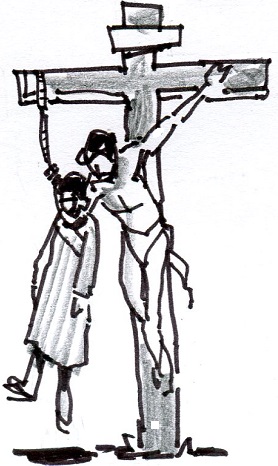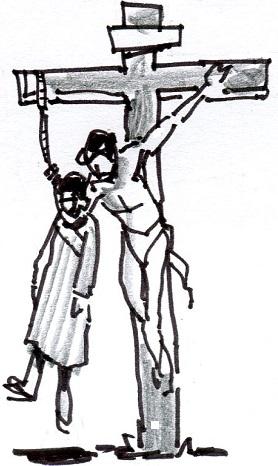

“The God of our ancestors raised Jesus, though you had him killed by hanging him on a tree” (Acts 5:30).
The late theologian James Cone’s 2011 book, The Cross and the Hanging Tree, posed the inexplicable question of how and why white Christians in America seemed unable to connect the death of Jesus on the cross to the lynching of thousands of black Americans during the post-Civil War era of Jim Crow. The scripture writers clearly identified crucifixion as a form of terror and torture to suppress slaves and subversives. Jesus was hung on a cross on a hill near the entrance to the city to send the message to the crowds assembled to watch that challenging the status quo would not be tolerated.
The black community clearly saw the parallel between the cross and the lynching tree and found their only solace in knowing the violence against Jesus and against them was somehow redemptive in a way that would eventually penetrate and confront the denial and cultural images of a white Jesus redeeming the world by his death on the cross. For that denial to persist, the injustice of Jesus' death could never be allowed to merge with the violence being inflicted on black victims of lynch mobs. The strict segregation of black and white Christians would have been unsupportable had crucifixion been recognized for what it was, the public lynching of anyone who threatened the status quo.
The fourth Gospel repeatedly uses the image of the “lifting up” of the Son of Man for both the death of Jesus and the promise of resurrection that vindicated the triumph of love over hatred and injustice. The state-sponsored murder of Jesus was the world’s response to God’s invitation to reconciliation and love. Jesus, who has come from above, will be lifted up on the tree for all to see. By his suffering and death he will pour out the saving gifts of salvation when he breathes his Holy Spirit into the disciples.
Nicodemus must think spiritually to grasp what is happening when Jesus is being crucified. “The one who is of the earth is earthly and speaks of earthly things.” He must grasp the meaning of the lifting up of the condemned Jesus as the moment of truth that reveals the redemptive power of Jesus' death and resurrection.
The Easter season is reserved for contemplating these mysteries and paradoxes. This time of “Mystagogia” was the heart of Christian formation for the newly baptized. We are all newly baptized each Easter, drawn deeper and deeper into the mystery of God’s amazing love for us.
Advertisement








